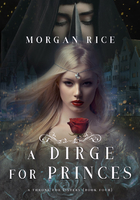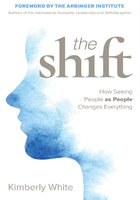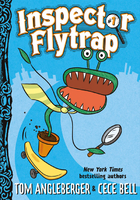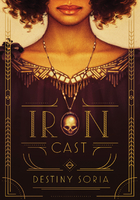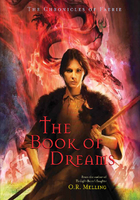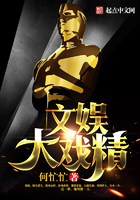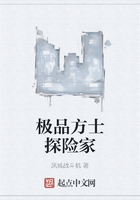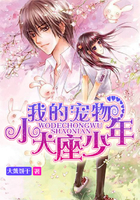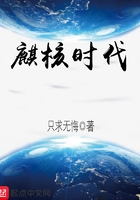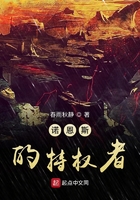by Stephen King
I grew up in a small northern New England farming community where most of the roads were dirt, there were more cows than people, and the school housing grades one through eight was a single room heated by a woodstove. Kids who were bad didn't get detention; they had to stay after school and either chop stovelengths or sprinkle lime in the privies.
Of course, there was no town library, but in the deserted Methodist parsonage about a quarter of a mile from the house where my brother David and I grew up there was one room piled high with mouldering books, many of them swelled to the size of telephone directories. A good percentage of them were boys' books of the sort our British cousins call 'ripping yarns'. David and I were voracious readers, a habit we got from our mother, and we fell upon this trove like hungry men on a chicken dinner.
There were dozens concerning the brilliant boy inventor Tom Swift (we used to joke that sooner or later we'd surely come across one titled Tom Swift and His Electric Grandmother); there were almost as many about a heroic World War II RAF pilot named Dave Dawson (whose Spitfire was always 'prop-clawing for altitude'). We fought the evil Scorpion with Don Winslow, detected with the Hardy Boys, roved with the Rover Boys.
Eventually – around the time John Kennedy became president, I think – we came to feel something was missing. These stories were exciting enough, but something about them was … off. Part of it might have been the fact that most of the stories were set in the twenties and thirties, decades before my brother David and I were born, but that was not the greater part of it. Something about those books was just wrong. The kids in them were wrong.
There was no library, but in the early 1960s the library came to us. Once a month a lumbering green van pulled up in front of our tiny school. Written on the side in large gold letters was STATE OF MAINE BOOKMOBILE. The driver-librarian was a hefty lady who liked kids almost as much as she liked books, and she was always willing to make a suggestion. One day, after I'd spent twenty minutes pulling books from the shelves in the section marked YOUNG READERS and then replacing them again, she asked me what sort of book I was looking for.
I thought about it, then asked a question – perhaps by accident, perhaps as a result of divine intervention – that unlocked the rest of my life. 'Do you have any stories about how kids really are?'
She thought about it, then went to the section of the Bookmobile marked ADULT FICTION, and pulled out a slim hardcover volume. 'Try this, Stevie,' she said. 'And if anyone asks, tell them you found it yourself. Otherwise, I might get into trouble.'
The book, of course, was the one you are now about to reread or perhaps (oh, lucky you) to experience for the first time.
Imagine my surprise (shock might be closer) when, half a century after that visit to the Bookmobile parked in the dusty dooryard of the Methodist Corners School, I downloaded the audio version of Lord of the Flies and heard William Golding articulating, in the charmingly casual introduction to his brilliant reading, exactly what had been troubling me. 'One day I was sitting one side of the fireplace, and my wife was sitting on the other, and I suddenly said to her, "Wouldn't it be a good idea to write a story about some boys on an island, showing how they would really behave, being boys and not little saints as they usually are in children's books." And she said, "That's a first-class idea! You write it!" So I went ahead and wrote it.'
I had read adult novels before, or what passed for them (the room of water-dampened books in the Methodist parsonage was full of Hercule Poirots and Miss Marples as well as Tom Swifts), but nothing that had been written about children, for adults. I was thus unprepared for what I found between the covers of Lord of the Flies: a perfect understanding of the sort of beings I and my friends were at twelve or thirteen, untouched by the usual softsoap and deodorant. Could we be good? Yes. Could we be kind? Yes again. Could we, at the turn of a moment, become little monsters? Indeed we could. And did. At least twice a day and far more frequently on summer vacations, when we were often left to our own devices.
Golding harnessed his unsentimental view of boyhood to a story of adventure and swiftly mounting suspense. To the twelve-year-old boy I was, the idea of roaming an uninhabited tropical island without parental supervision at first seemed liberating, almost heavenly. By the time the boy with the birthmark on his face (the first littleun to raise the possibility of a beast on the island) disappeared, my sense of liberation had become tinged with unease. And by the time the badly ill – and perhaps visionary – Simon confronts the severed and fly-blown head of the sow, which has been stuck on a pole, I was in terror. 'The half-shut eyes were dim with the infinite cynicism of adult life,' Golding writes. 'They assured Simon that everything was a bad business.' That line resonated with me then, and continues to resonate all these years later. I used it as one of the epigraphs to my book of interrelated novellas, Hearts in Atlantis.
This is the farthest thing from a scholarly introduction, because there was nothing scholarly or analytical about my first reading of Lord of the Flies. It was, so far as I can remember, the first book with hands – strong ones that reached out of the pages and seized me by the throat. It said to me, 'This is not just entertainment; it's life or death.'
Flies wasn't a bit like the boys' books in the parsonage; in fact, it rendered those books obsolete. In the parsonage books, the Hardy Boys might get tied up, but you knew they'd get free. A German Messerschmitt might get on Dave Dawson's tail, but you knew he'd get away (by putting his Spitfire in prop-clawing mode, no doubt). By the time I reached the last seventy pages of Lord of the Flies I understood not only that some of the boys might die, but that some would die. It was inevitable. I only hoped it wouldn't be Ralph, with whom I identified so passionately that I was in a cold sweat as I turned the pages. No teacher needed to tell me that Ralph embodied the values of civilization and that Jack's embrace of savagery and sacrifice represented the ease with which those values could be swept away; it was evident even to a child. Especially to a child, who had witnessed (and participated in) many acts of casual schoolyard bullyragging. My relief at the last-minute intervention of the adult world was immense, although I was angry at the naval officer's almost offhand dismissal of the ragtag survivors ('I should have thought that a pack of British boys … would have been able to put up a better show …').
I stayed angry about that until I remembered – this was weeks later, but I still thought about the book every day – that the boys were on the island in the first place because a bunch of idiotic adults had started a nuclear war. And years later (by then I was on my fourth or fifth reading of the novel) I came across an edition with an afterword by Golding. In it he said (I'm paraphrasing): 'The adults save the children … but who will save the adults?'
To me, Lord of the Flies has always represented what novels are for, what makes them indispensible. Should we expect to be entertained when we read a story? Of course. An act of the imagination that doesn't entertain is a poor act indeed. But there should be more. A successful novel should erase the boundary-line between writer and reader, so they can unite. When that happens, the novel becomes a part of life – the main course, not the dessert. A successful novel should interrupt the reader's life, make him or her miss appointments, skip meals, forget to walk the dog. In the best novels, the writer's imagination becomes the reader's reality. It glows, incandescent and furious. I've been espousing these ideas for most of my life as a writer, and not without being criticized for them. If the novel is strictly about emotion and imagination, the most potent of these criticisms go, then analysis is swept away and discussion of the book becomes irrelevant.
I agree that 'This blew me away' is pretty much of a non-starter when it comes to class discussion of a novel (or a short story, or a poem), but I would argue it's still the beating heart of fiction. This blew me away is what every reader wants to say when he closes a book, isn't it? And isn't it exactly the sort of experience most writers want to provide?
Nor does a visceral, emotional reaction to a novel preclude analysis. I finished the last half of Lord of the Flies in a single afternoon, my eyes wide, my heart pounding, not thinking, just inhaling. But I've been thinking about it ever since, for fifty years and more. My rule of thumb as a writer and a reader – largely formed by Lord of the Flies – is feel it first, think about it later. Analyse all you want, but first dig the experience.
What I keep coming back to is Golding saying, 'Wouldn't it be a good idea to write a story about some boys … showing how they would really behave.'
It was a good idea. A very good idea that produced a very good novel, one as exciting, relevant and thought-provoking now as it was when Golding published it in 1954.
For
MY MOTHER AND FATHER

